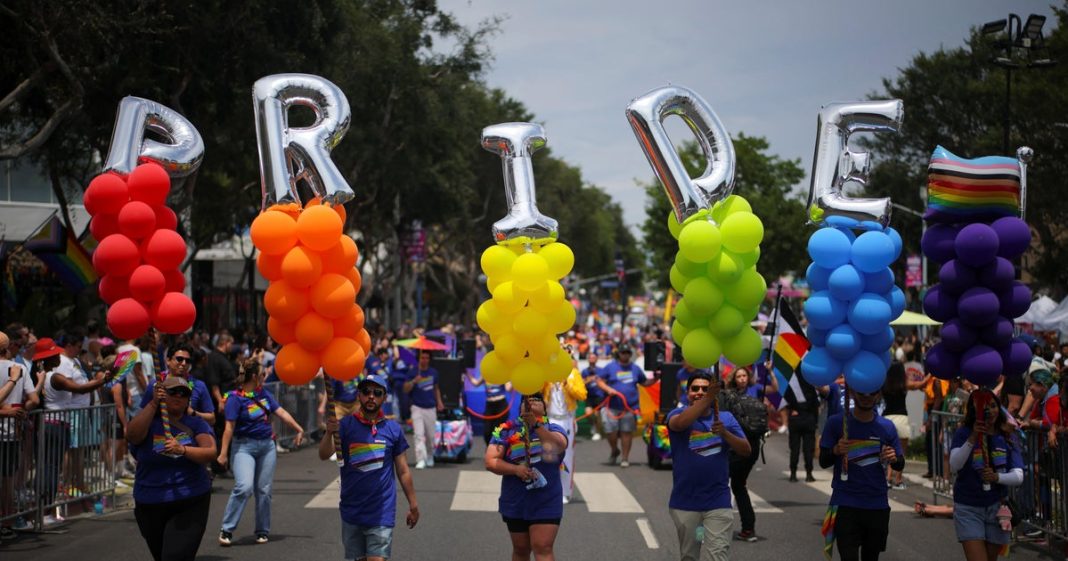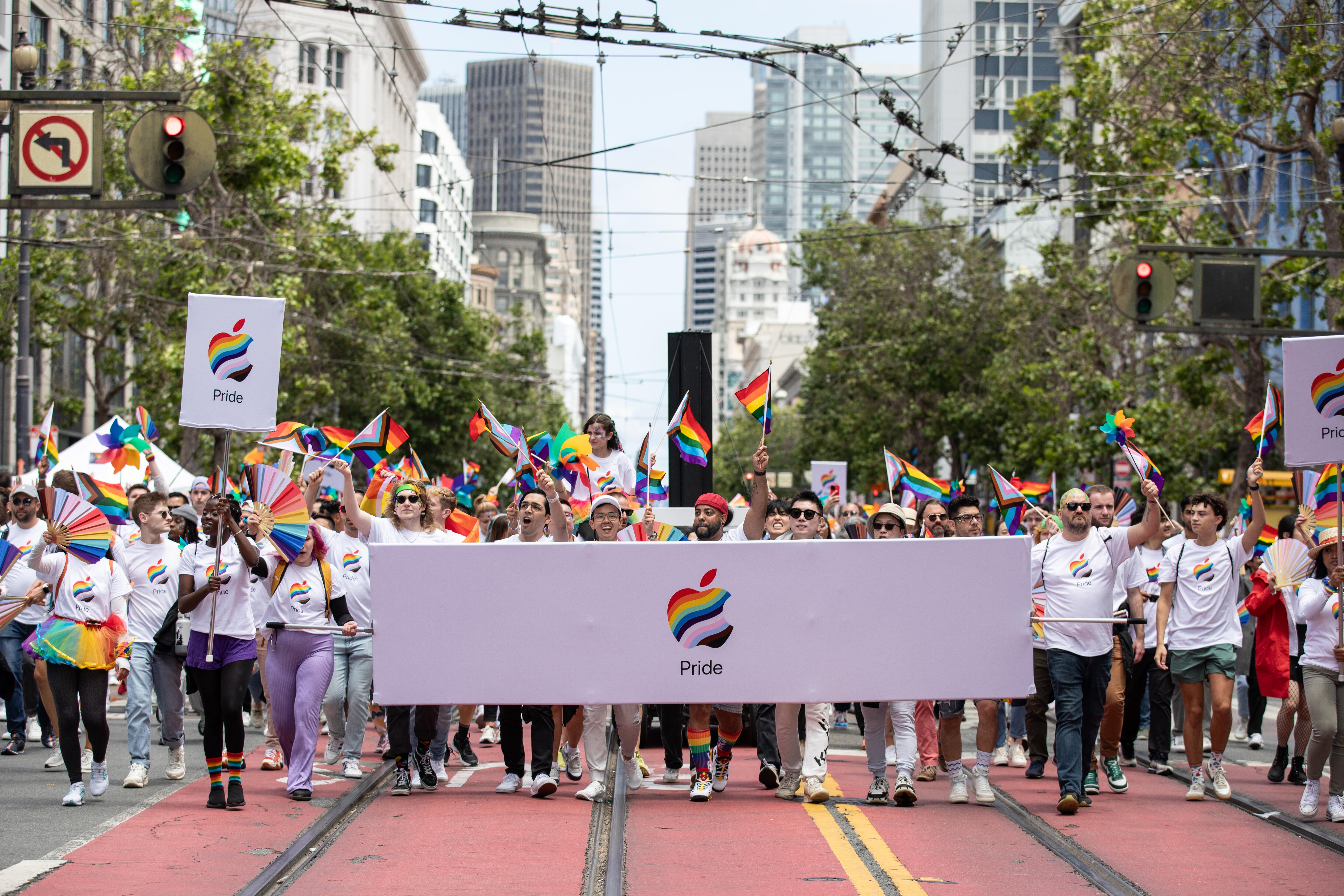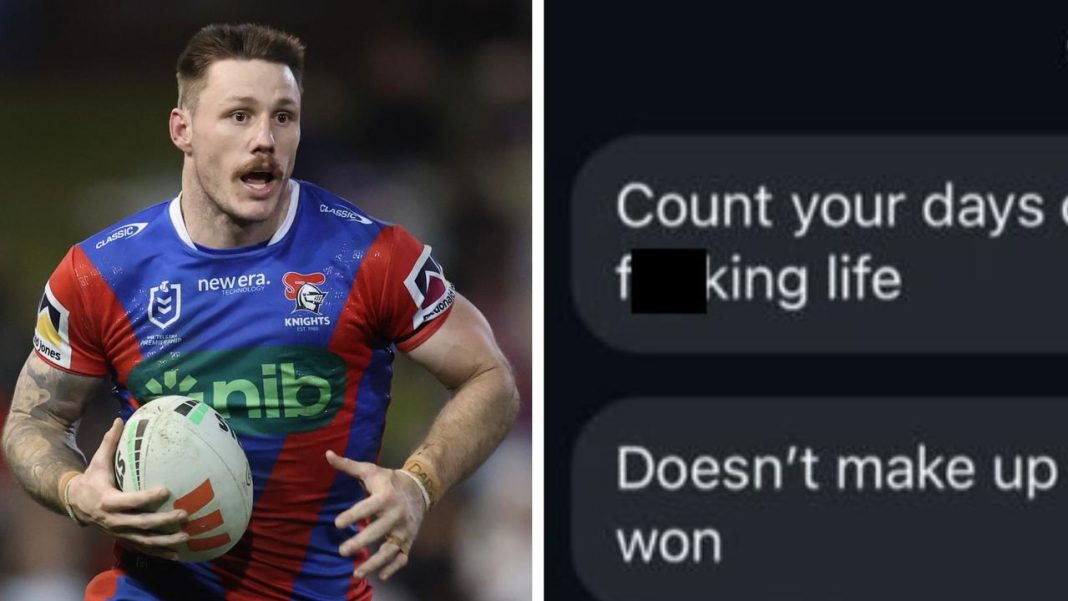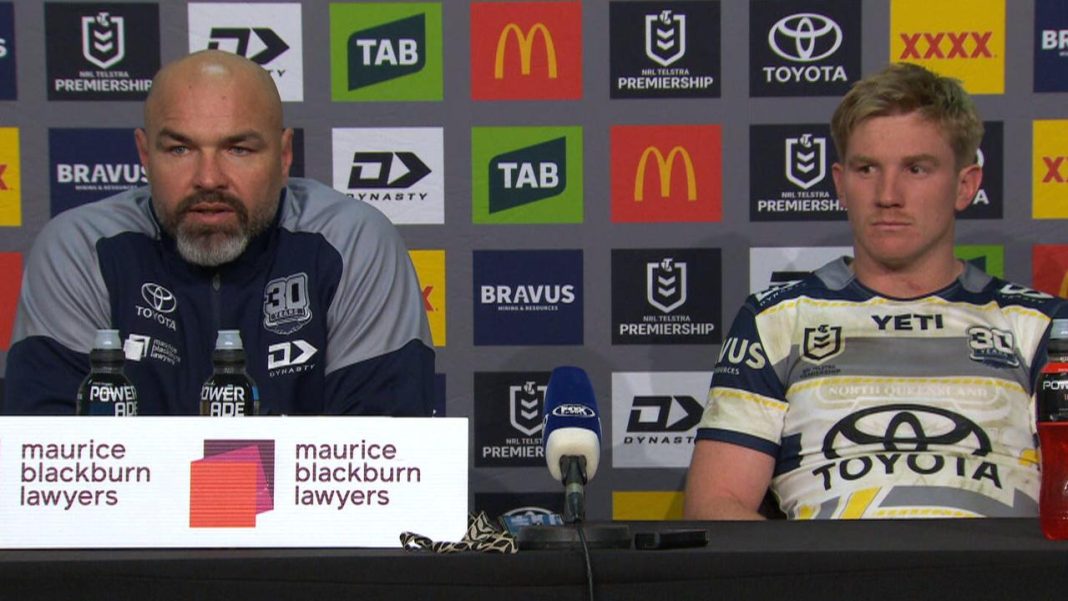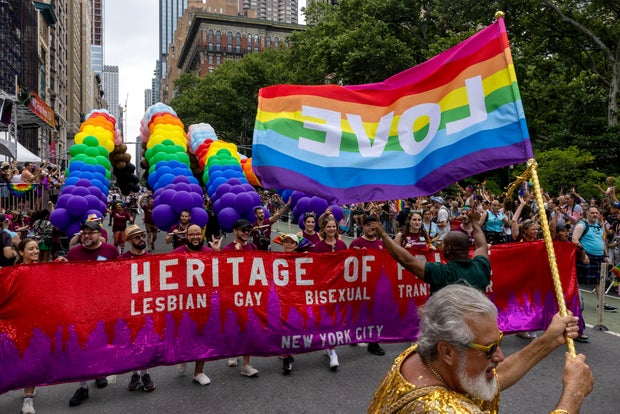

The architects of Pride celebrations across the United States met six-figure challenges this year, owing to a corporate exodus in the spring that diminished their sponsorship funds, which they said would jeopardize future programming. Organizers are contending with serious budget shortfalls as Pride Month begins, and several reported 20% to 30% less corporate support than in past years.
The show will go on this summer, they said, but what happens next is less certain.
“We’re going to make it to the event,” said Suzanne Ford, the executive director of San Francisco Pride, who told CBS News five corporate sponsors cut ties with the organization over the course of one overwhelming week in March and several others reduced their funding. “The real question now is, what kind of shape are we going to be in on the other side of Pride? Are we going to be able to keep the doors open?”
Corporate partners that backed out of San Francisco Pride this year were historically among its largest and most reliable donors, including Nissan Comcast/Xfinity and Bud Light’s parent company, Anheuser-Busch. Along with Target, Bud Light has faced public backlash and boycotts over its Pride advertising in recent years.
“That hurt us greatly,” Ford said of losing Anheuser-Busch, previously “one of the very largest” sponsors of San Francisco Pride. “Comcast and Nissan have been significant and have been longtime partners. They’ve been with us for a long time, so it was money that we’ve counted on.”
Their retreats meant San Francisco Pride was operating at a loss of about $300,000, which Ford hopes will shrink to about $200,000 once increased donations are factored in from other sponsors, who raised their pledges to narrow the gaps left by the bigger brands. Two large corporate partners, Benefit Cosmetics and La Crema, initially dropped their sponsorship contracts but have since returned as partners, Ford said.
Several brands that stepped back from Pride partnerships in San Francisco have done the same in other cities. Anheuser-Busch, known for decades as a supporter of the LGBTQ community, also declined to sponsor the 2025 Pride Festival in its hometown of St. Louis, according to that event’s organizers. The company had been one of their leading sponsors for the last 30 years, the organizer’s said.
Pride Month was originally conceived as a way to commemorate the 1969 Stonewall riots, which are credited with kick-starting the modern gay rights movement, and it has evolved since then into a multifaceted celebration of the LGBTQ community. Local Pride plans typically involve multiday event rosters with at least one march, parade or festival, which are intermittently known to draw a million or more attendees.
Celebrations around Pride grew tremendously over the last decade or so, organizers say, in large part because of an influx of corporate sponsorships cropping up after the U.S. legalized marriage equality in 2015. The upward trend in brand support was so steep for a period of time that some sponsors were accused of exploiting LGBTQ issues for the purpose of turning a profit.
That trend looked very different this year, as corporate sponsors around the country either withdrew their support for Pride festivities or significantly scaled it back. Many attributed their decisions to financial strain or internal transitions, according to statements from several companies and organizers who recalled their conversations to CBS News.
“Nissan is currently reviewing all marketing and sales spending — including select consumer auto shows, sports properties and other entertainment activations — to maximize both efficiency and breakthrough effectiveness,” a Nissan spokesperson said of the brand breaking partnerships with Pride organizers in San Francisco as well as New York City.
But organizers and supporters see a pattern in the sponsorship cancellations, which some consider implicit byproducts of the Trump administration’s anti-DEI policies and ongoing attacks on transgender Americans. Ron de Harte, the co-president of the Board of Directors at USA Prides, a national network of Pride organizations, said the decline in national brand sponsorships for Pride events is widespread this year.
“This is happening with festival and event sponsorships across the board,” said de Harte in a statement. “Of course, bad economic times are coupled with the current administration’s unfriendly actions toward the LGBTQ communities, so some markets have sponsors who have moved on.”
As the Capital Pride Alliance organized WorldPride this year in Washington, D.C., it grappled with a litany of complications leading up to this weekend’s international gathering. After President Trump took over the Kennedy Center, multiple WorldPride events were either canceled or relocated under new leadership. In addition, the consulting firm Booz Allen Hamilton, a major federal contractor, backed out of its 2025 WorldPride contract in a move that critics thought bent to government pressure.
A spokesperson for Capital Pride Alliance said Booz Allen was the only WorldPride sponsor that canceled a finalized contract, but others dropped out in various stages of the sponsorship process, including Comcast/Xfinity, Deloitte and Visa. The spokesperson said some brands became “silent partners,” which means they donate in the background but avoid the publicity that can come with outright sponsorship.
Matt Cheng, the director of corporate sponsorships at Heritage of Pride, the nonprofit that produces New York City Pride events, told CBS News that its corporate partners gave various explanations for decreasing or eliminating support. Economic weariness was among them, he said, along with fear of retaliation.
“One of the big ones is the tariffs and economy. A lot of budgets have gotten slashed from a DEI and marketing perspective,” he said. “But then the other one is fear of backlash from the federal government.”
Heritage of Pride lost roughly one-quarter of its sponsorship dollars, or about $750,000, in the last few months. Large companies like Deutsche Bank ramped up their earlier donations to organizations because of the shortfall, and a poll of about 100 individual donors recently gave $10,000 or so, Cheng said. He hoped New York City Pride fundraisers would bring them closer to zero losses.
“In addition to reviewing our budget lines to make sure we can afford to put on Pride the way that it typically is put on, our other concern is our year-round programming,” he said.
More immediately, a 25% budget gap would likely require Heritage of Pride to cut their only two grant programs, both of which support at-risk communities, Cheng added.
Like San Francisco, St. Louis and WorldPride in D.C., New York City Pride also lost large sponsors. Nissan and PepsiCo both pulled support from Heritage of Pride after previously being top donors, according to public partnership information released last year and Kevin Kilbride, the media and marketing manager at the nonprofit. Other sponsors have reduced their funding but are still planning to march in the upcoming Manhattan parade, Kilbride said.
Target has remained a silent partner of New York City Pride. Kilbride said Target continues to be “a valued partner” and its sponsorship this year was “at a level consistent with years’ past.”
“We are absolutely dedicated to fostering inclusivity for everyone — our team members, our guests, our supply partners, and the more than 2,000 communities we’re proud to serve,” a Target spokesperson said in a statement. “As we have for many years, we will continue to mark Pride Month by offering an assortment of celebratory products, hosting internal programming to support our incredible team and sponsoring local events in neighborhoods across the country.”
CBS News contacted Anheuser-Busch, Booz Allen Hamilton, Comcast, Deloitte and PepsiCo but did not receive replies.
Source link


